 Poster about recruitment into the Ukrainian army, which is experiencing difficulties with manpower. Photo: SERGEY SUPINSKY/AFP
Poster about recruitment into the Ukrainian army, which is experiencing difficulties with manpower. Photo: SERGEY SUPINSKY/AFP
When Russia invaded Ukraine two years ago, Vladimir sent his ex-wife and four-year-old son abroad for safety.
Like most Ukrainian men, he stayed because of martial law banned him from leaving. But after two years of solitude and being declared unfit for service due to health reasons, he decided to join his family in Germany.
«The child needs a father,» he said.
Now, he could find himself in a difficult position after a controversial law denied consular assistance to men of fighting age abroad. People aged 18 to 60 will only be able to replace their passports in Ukraine, meaning they will have to return to the country — and risk being drafted into the army.
The move, designed to fill a critical manpower shortage in the country's armed forces, aims to resolve long-standing tensions surrounding men who escaped a wartime ban on foreign travel. But critics, including some military personnel, warn it could be unconstitutional and would simply encourage those already overseas to stay away. Poland even proposed deporting Ukrainian men to their homeland for conscription.
For his part, 39-year-old Vladimir will not heed the call and will not return: “It was mentally difficult for me [to leave], but I decided that my family needed me. I don't feel any pressure from family or friends to come back. All my comrades understand my situation.”
Units are understaffed
Ukrainian military commissariats or local recruiting centers were overloaded with volunteers in the first months of the invasion. However, waning enthusiasm and heavy losses over the past two years have left many units dangerously understaffed.
Ukrainian and Western military strategists have identified manpower shortages as one of three critical problems that must be addressed if Ukraine is to counter the current Russian offensive and ultimately regain the initiative.
“The immediate focus has been on ammunition.
«As for putting people on planes, we haven't been asked about that, and I don't think we will be asked about that,» the official added when asked whether his government would send Ukrainian men home.
The Ukrainian government has taken a number of measures to attract recruits, including lowering the conscription age from 27 to 25.
Wednesday's announcement, however, appears to have caused some confusion within the Ukrainian government. One Ukrainian official told the Telegraph they were not entirely sure how the law would work, as issues such as tax exemptions for those legally unable to fight, such as Vladimir, did not appear to have been resolved.
 Dmitry Lazutkin, a spokesman for Ukraine's Ministry of Defense, said there are no plans to issue overseas conscription notices. Photo: Vladimir Tarasov/Future Publishing
Dmitry Lazutkin, a spokesman for Ukraine's Ministry of Defense, said there are no plans to issue overseas conscription notices. Photo: Vladimir Tarasov/Future Publishing
Press Secretary of the Ukrainian Ministry of Defense Dmitry Lazutkin said that there are no plans to issue summonses for conscription abroad.
“The Ministry of Defense cannot comment on the actions of the foreign policy department. I think it's quite unrealistic,” he told Radio Free Europe.
It also drew mixed reactions from Ukraine's allies. Wladyslaw Kosiniak-Kamysz, Poland's defense minister, said that «Ukrainian citizens have obligations to the state» and that Warsaw will help «in ensuring that those subject to compulsory military service go to Ukraine.»
< p>German authorities have said that some Ukrainian men will be able to extend their stay in the country even if their passports expire, as long as there is a way to identify them.
Men aged 18 to 60 have officially done so. he has been barred from leaving Ukraine since President Volodymyr Zelensky declared martial law on the first day of the Russian invasion in 2022.
In practice, many were able to obtain tax exemptions either by being declared unfit for military service, having three or more children, or by obtaining special travel permission from the government. Others tried to leave illegally, some smuggled across Ukraine's western borders. Last year, Zelensky cracked down on officials who abused travel benefits. The bar for eligibility for service was also lowered.
The European Union's statistical agency, Eurostat, says there are 4.3 million Ukrainians living in EU countries, 860,000 of whom are men aged 18 and over. The British government says it has issued 256,200 visas to Ukrainian refugees under its scheme. It is unclear how many of them were men of fighting age.
Ukrainian men living abroad told Telegraph that they do not plan to return to fight, and consider the law unfair.
“The law is like this. unfair.”
“My passport is still valid,” said Vladimir, 39, “but I think that for many people who came here from occupied areas such as Mariupol, the situation is a little insulting. Russia destroyed their homes, and now their own country is attacking them with a stick.”
Vladimir, a construction worker from western Ukraine who has lived and worked in the Czech Republic for most of the last eight years, said: “The law is unfair. And all my Ukrainian friends from the Czech Republic, Lutsk and Kyiv think so. Nobody is happy about this. The government forces us, and with such laws we will move away from them. We will take citizenship in other countries.”
“People won't come back. The longer the war continues, the more such laws are passed, the more people hate Ukraine and the government. Why should I go back to fight? For what? Why didn’t the government take care of migrant workers like me before the war?”
“Every day we have less territory and fewer people. Some were killed, others swam across the Tisa River to escape.” The Tisza, a tributary of the Danube, marks a 10-mile stretch of Ukraine's border with Hungary.
 The law has drawn criticism from some military personnel. Photo: Wojtek Radwanski/Getty
The law has drawn criticism from some military personnel. Photo: Wojtek Radwanski/Getty
One man, who admitted he left the country illegally and is currently in Indonesia, said he did not feel obligated to fight for the country and considered himself a bystander rather than a bystander. war participant.
Perhaps surprisingly, the law has even drawn criticism from some soldiers. “I absolutely agree with them,” said Nikita Ruzhenko, a recruiting sergeant with the Ukrainian 113th Brigade based in Kharkov, when asked what he thought of their opinion. “Telling them that they left Ukraine and therefore they are no longer Ukrainians is not normal. We need to invite people back, welcome them joyfully, and not tell them that they are not Ukrainians. This is nonsense***.»
«This law will not work properly. This is a political compromise and no one wants to take responsibility. This is not good for either the military or the civilians. This is for everyone and no one.”
Sergeant Ruzhenko, who lost an eye in the first year of the war but, like many wounded, is still considered fit for duty and cannot be demobilized, admits that the current recruitment is terrible. Although his ideal soldier would be between 27 and 30 years old, the average candidate is around 45 or 50 years old, belongs to the socio-economic fringes of society and is often in poor health.
“Doctors pass them on as capable. When commanders come to their units, they see people who are tired, in poor health, some with chronic diseases,” he said.
The solution, he argues, is not to threaten people abroad, but to let people choose their units.
“Nobody listened to the military. The military wants direct recruitment into brigades, bypassing the commissariats. It will be much more effective and much fairer. This will lead us to victory, and people will serve where they want, how they want and with whom they want,” he said.
“Many people want to serve, they just don’t want to be assigned to the «meat brigade,» he said, using soldier slang for units where «lower and higher-level commanders don't care about their men.»
He declined to give examples, but said all soldiers know who are the good and bad units and commanders.
“Brigades that understand people are very valuable and naturally expand and become stronger. Bad brigades will wither and eventually disappear, and Ukraine will end up with a more efficient and professional army.
“It would be like free market recruitment — and now we have the USSR.”

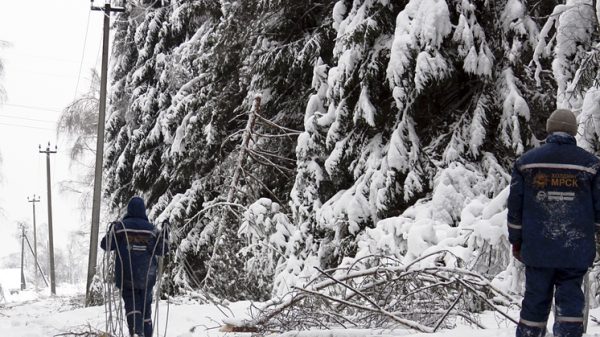

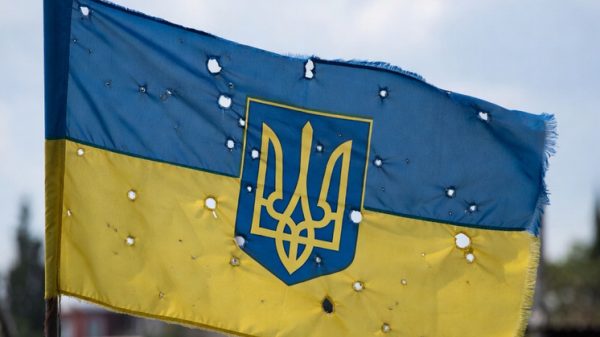









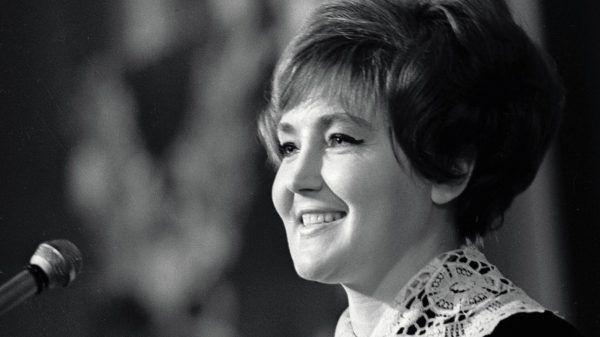
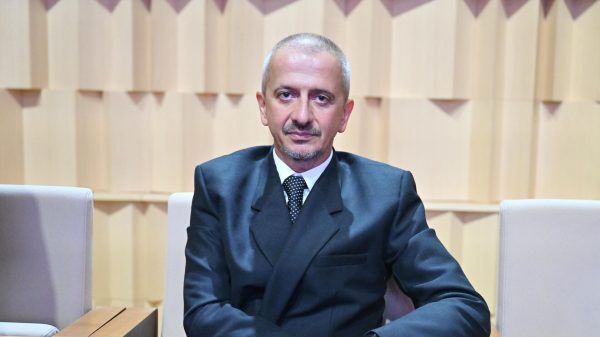






































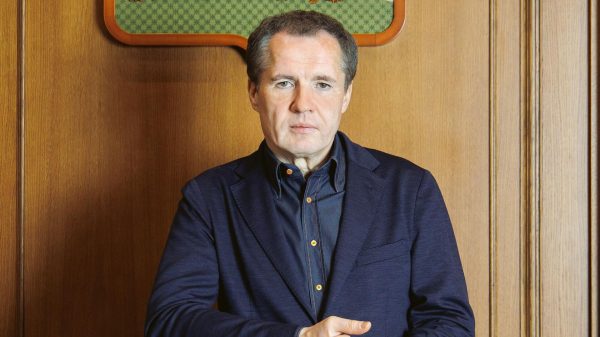

Свежие комментарии